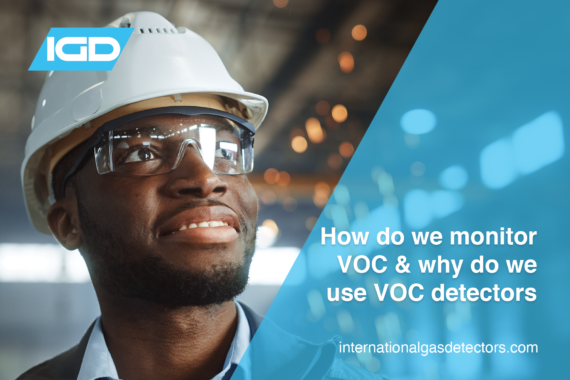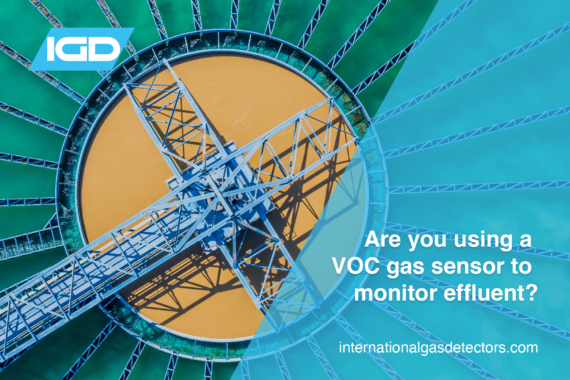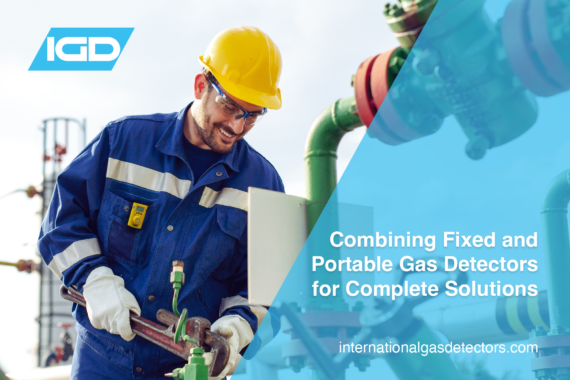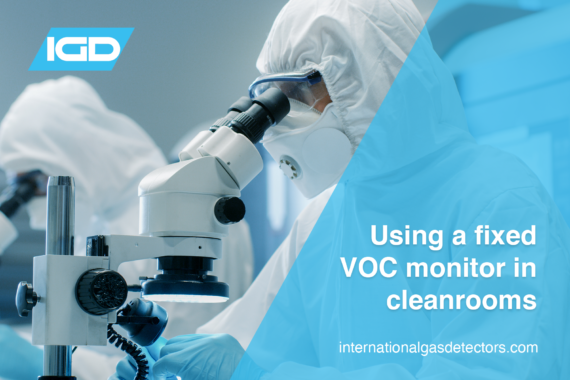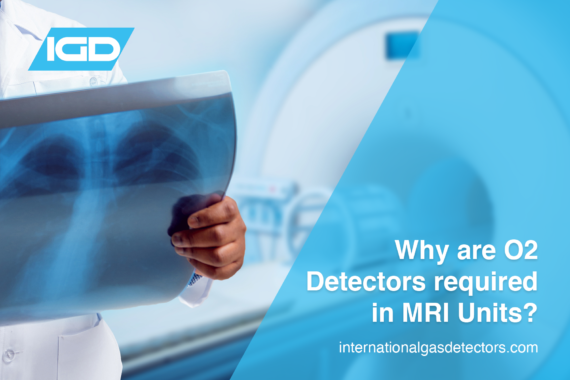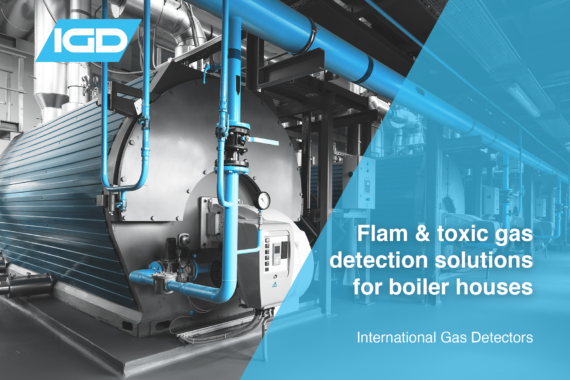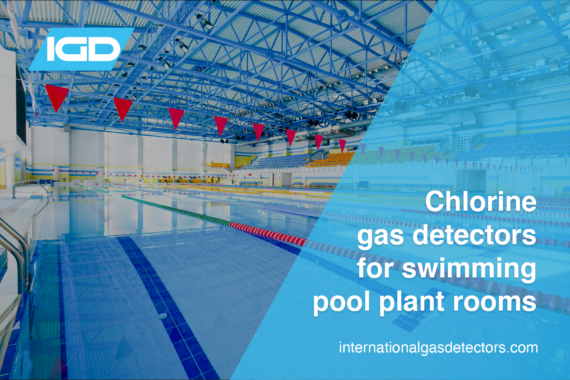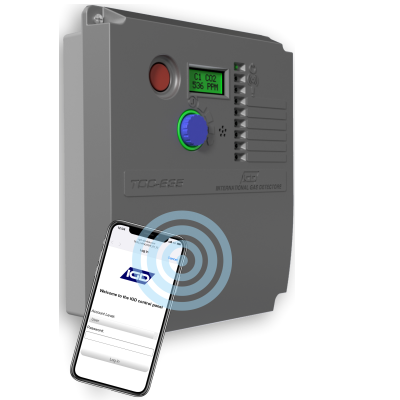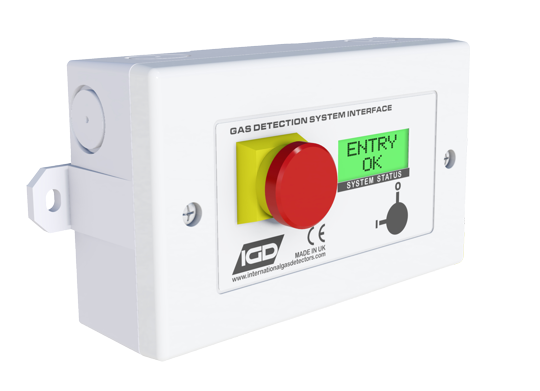VOC’s are extremely common and can be from surprising sources. Each VOC comes with its own exposure hazards and reasons these need to be monitored, these can be found by accessing each materials Material Safety Data Sheet (MSDS). But how are these monitored? And why do we monitor these gases? These questions will be answered in this article to help provide a basic understanding of VOC gases and the dangers.
Are You Using a VOC Gas Sensor to Monitor Effluent?
Handling and treating effluent presents a wide range of hazards, from confined spaces to the treatment processes. Effluent, wastewater and water treatment also ranges across a wide range of industries, expanding the encounterable hazards significantly. One of these hazards commonly encountered involves VOC gases. These compounds can present a wide range of issues; thus, a VOC gas sensor is extremely useful in this industry. Read on to find out more about the VOCs encountered when monitoring effluent, the hazards and the VOC gas sensor solution on offer.
Combining Fixed and Portable Gas Detectors for Complete Solutions
Gas detectors are usually categorised as either being fixed, portable or transportable. All of these types have a range of methods of detecting gas or vapour hazards and have their own strengths and weaknesses. Selecting the correct solution depends on the circumstance of operation, topography of the site or application and the nature of the gas hazard. For example fixed systems are impractical for sewer workers operating in confined spaces. This type of application suits a portable personal gas detector. Similarly an indoor process in a lab or production facility requires 24 hour monitoring, something a portable detector cannot provide. In some instances a combination of both fixed and portable provides the best solution so correct assessment of the hazard and best available technology to monitor is vital.
Using a Fixed VOC Monitor in Cleanrooms
Cleanrooms are found across a wide range of industries for a vast range of uses. This includes the most common ones such as laboratories, pharmaceutical and medical as well as semi-conductor applications and many other less common ones. Each of these industries need to monitor VOCs for a wide range of reasons, from the hazards they may cause to the personnel to the effects on the work they are doing, thus a fixed VOC monitor will be needed in each of these applications. This article will detail the reasons why a Fixed VOC Monitor may be required in each application as well as the hazards that come with VOCs. This article will also detail the revolutionary Fixed VOC Monitors on offer from IGD. Read on below to find out more.
Why are O2 monitors required for MRI units?
MRI units are not commonly thought of when talking about gas safety, however these areas can quickly become dangerous when leaks occur. Understanding the dangers of MRI units as well as the gases used within them are vital to understanding why O2 monitors are required in these areas. This article covers all of the essential information in understanding this. Including the gases encountered in these areas to providing you details of IGD’s detectably better solution in O2 monitors.
How Long Does a VOC Sensor Last?
How long does a VOC sensor last? VOC sensors based on Photo-Ionisation technology (PID) are more complex than most other types of gas detector. PID based detectors utilise an Ultra-violet (UV) lamp to ionise the gas sample. The life of the UV lamp is one of the on-going costs of ownership for this type of detector. This article delves into the typical lamp life currently on the market and why it is capped at a certain amount. IGDs specialist knowledge in PID detection however allows us to set the standard with our revolutionary new development in VOC sensor technology. Read our article to learn more about our latest improvement.
Flammable & Toxic Gas Detection Solutions for Boiler Houses
Boiler equipment is usually stored in its own room, known as a boiler house, which is typically unventilated. Boiler houses are often visited infrequently, meaning that if there are toxic or flammable gases leaking, they are more likely to go undetected. Read our article to learn why you need an automatic gas detection system and our gas detection solutions.
Using Chlorine Gas Detectors in Swimming Pool Plant Rooms
Imagine going to a swimming pool and returning home with severe respiratory problems. The chances of this happening are high in public swimming pools that do not use chlorine gas detectors. Chlorine i
New TOCSIN 635 Mounted Gas Detection Control Panel
When you require a gas detection system that is not only easy to use but also cost-effective and has a small footprint, then the all-new TOCSIN 635 mounted gas detection control panel is your solution
New 2-Wire Addressable Room Status Indicators
Room Status Indicators At IGD we are often asked for room entry status indicators to show if it is safe or not to enter an area protected by our gas detectors. In many cases clients will ask for some

